Join us for a free one-day workshop for educators at the Japanese American National Museum, hosted by the USC U.S.-China Institute and the National Consortium for Teaching about Asia. This workshop will include a guided tour of the beloved exhibition Common Ground: The Heart of Community, slated to close permanently in January 2025. Following the tour, learn strategies for engaging students in the primary source artifacts, images, and documents found in JANM’s vast collection and discover classroom-ready resources to support teaching and learning about the Japanese American experience.
China's Growing Pains
Join us on Friday, April 22 for a day-long discussion of where China is, where it might be heading, and why it matters for the Chinese, the United States, and the world.
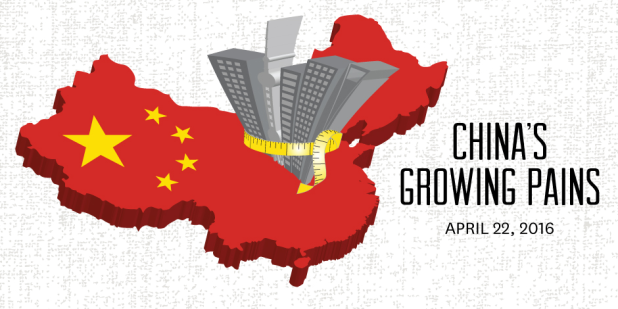
Click here to watch the presentations.
Our roster of distinguished scholars and policy analysts will examine
- the state of U.S.-China relations and China’s geopolitical aims and tactics
- the state of China’s economy and prospects for economic reforms
- the benefits and challenges of China’s rapid and continuing urbanization
- if dominant political and social trends will foster the stability the party wants and the innovation the economy needs
REGISTER | SCHEDULE | KEYNOTE | SPEAKERS | MODERATORS
WHEN
Friday, April 22, 2016 from 8:00 AM to 5:00 PM
WHERE
The Radisson Hotel at USC - 3540 S Figueroa St. Los Angeles, CA - View Map
COST
$75 before April 3 for early bird price
$100 (plus Eventbrite fee) after April 3
$25 for students (must present valid student ID during check-in)
Please note: registration fees are non-refundable.
Included: Breakfast, lunch, refreshments, and conference goodies!
2016 HERBERT G. KLEIN LECTURE AND OPENING KEYNOTE ADDRESS
 Daniel Russel became Assistant Secretary of State for East Asia and the Pacific in 2013. Prior to this, he served for four years on the National Security Council, the last two years as Senior Director for Asian Affairs. Russel entered the U.S. diplomatic service in 1985. He has served in Japan, South Korea, the Netherlands, Cyprus, and at the United Nations. He was educated at Sarah Lawrence College and the University of London. While on sabbatical at Georgetown University, Russel wrote America's Place in the World (1996).
Daniel Russel became Assistant Secretary of State for East Asia and the Pacific in 2013. Prior to this, he served for four years on the National Security Council, the last two years as Senior Director for Asian Affairs. Russel entered the U.S. diplomatic service in 1985. He has served in Japan, South Korea, the Netherlands, Cyprus, and at the United Nations. He was educated at Sarah Lawrence College and the University of London. While on sabbatical at Georgetown University, Russel wrote America's Place in the World (1996).The Herbert G. Klein Lecture is a program of the USC Dornsife College of Letters, Arts and Sciences. Herb Klein was a distinguished USC alumnus and trustee. Click here to learn more about him. Two previous Klein Lectures have focused on U.S.-China relations: Amb. J. Stapleton Roy (2007) and Amb. Clark T. Randt, Jr. (2008).
 Jeffrey A. Bader is a senior fellow and founding director of the John L. Thornton China Center at the Brookings Institution. He served in the U.S. government for three decades, including 2009-2011 when he served at the National Security Council and was President Obama’s principal advisor on Asia. His book on that experience is Obama and China's Rise: An Insider's Account of America's Asia Strategy. His most recent essay is “How Xi Jinping sees the world… and why.”
Jeffrey A. Bader is a senior fellow and founding director of the John L. Thornton China Center at the Brookings Institution. He served in the U.S. government for three decades, including 2009-2011 when he served at the National Security Council and was President Obama’s principal advisor on Asia. His book on that experience is Obama and China's Rise: An Insider's Account of America's Asia Strategy. His most recent essay is “How Xi Jinping sees the world… and why.”
 Baizhu CHEN teaches at the USC Marshall School of Business and is the academic director of the school’s Global Executive MBA program in Shanghai. A specialist in finance, his recent research has looked at the ownership structure, debt burden, and performance of Chinese firms as well as regional growth trends and futures markets. Chen writes for Forbes and is frequently cited by broadcast and print news organizations. His op-eds have looked at the need for economic reforms, China as an importer, and other U.S.-China economic issues.
Baizhu CHEN teaches at the USC Marshall School of Business and is the academic director of the school’s Global Executive MBA program in Shanghai. A specialist in finance, his recent research has looked at the ownership structure, debt burden, and performance of Chinese firms as well as regional growth trends and futures markets. Chen writes for Forbes and is frequently cited by broadcast and print news organizations. His op-eds have looked at the need for economic reforms, China as an importer, and other U.S.-China economic issues.

Carla Freeman teaches at the Johns Hopkins University School of Advanced International Studies and directs the school’s Foreign Policy Institute. She works on China’s international and domestic policy. Her work on China’s regional policies and struggle to balance development and environmental sustainability has been especially influential. She’s edited or co-edited many important works, including the new eight volume series The International Relations of China as well as Handbook on China and Developing Countries and China and North Korea: Strategic and Policy Perspectives from a Changing China.
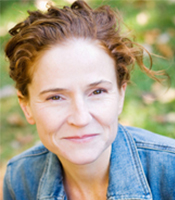 Mary Gallagher heads the Lieberthal – Rogel Center for Chinese Studies at the University of Michigan where she also teaches political science. Gallagher has long looked at links between economic development and political change and the rule of law in China. Her first book was Contagious Capitalism: Globalization and the Politics of Labor in China and her newest is Authoritarian Legality: Law, Workers, and the State in Contemporary China (out soon). Other works look at “legislating harmony,” how Chinese media supports authoritarianism, and corporate restructuring.
Mary Gallagher heads the Lieberthal – Rogel Center for Chinese Studies at the University of Michigan where she also teaches political science. Gallagher has long looked at links between economic development and political change and the rule of law in China. Her first book was Contagious Capitalism: Globalization and the Politics of Labor in China and her newest is Authoritarian Legality: Law, Workers, and the State in Contemporary China (out soon). Other works look at “legislating harmony,” how Chinese media supports authoritarianism, and corporate restructuring.
 Joshua Goldstein teaches history at USC. Best known for his book Drama Kings, which explores the interplay between politics, society, and culture in recreating Peking Opera in late imperial and Republican China, Goldstein has been working on the history of recycling in China, including China’s processing of the world’s cast off plastics, paper, and other materials. He’s also written on health campaigns and co-edited two books on modernity in everyday life in China and on “visualizing” modern China.
Joshua Goldstein teaches history at USC. Best known for his book Drama Kings, which explores the interplay between politics, society, and culture in recreating Peking Opera in late imperial and Republican China, Goldstein has been working on the history of recycling in China, including China’s processing of the world’s cast off plastics, paper, and other materials. He’s also written on health campaigns and co-edited two books on modernity in everyday life in China and on “visualizing” modern China.
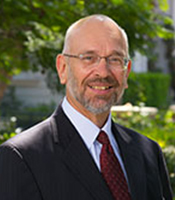 Eric Heikkila teaches public policy and oversees international initiatives at the USC Price School of Public Policy. He is a specialist on urban planning and information systems and economic development. He’s currently completing a book on China from a U.S. Policy Perspective. His previous works include The Economics of Planning and numerous articles on a wide range of topics including sustainable development, housing, a typology of Chinese cities, river revitalization in Southern China, and development in historically and architecturally sensitive areas.
Eric Heikkila teaches public policy and oversees international initiatives at the USC Price School of Public Policy. He is a specialist on urban planning and information systems and economic development. He’s currently completing a book on China from a U.S. Policy Perspective. His previous works include The Economics of Planning and numerous articles on a wide range of topics including sustainable development, housing, a typology of Chinese cities, river revitalization in Southern China, and development in historically and architecturally sensitive areas.
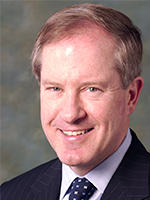 Nicholas Lardy is the Anthony M. Solomon Senior Fellow at the Peterson Institute for International Economics. He was previously with the Brookings Institution and the University of Washington, where he led the Henry M. Jackson School of International Studies. Lardy has been a prolific and influential writer for decades, writing first on China’s planned economy and then on its economic reforms and rising importance to the world economy. His most recent book is Markets over Mao: The Rise of Private Business in China.
Nicholas Lardy is the Anthony M. Solomon Senior Fellow at the Peterson Institute for International Economics. He was previously with the Brookings Institution and the University of Washington, where he led the Henry M. Jackson School of International Studies. Lardy has been a prolific and influential writer for decades, writing first on China’s planned economy and then on its economic reforms and rising importance to the world economy. His most recent book is Markets over Mao: The Rise of Private Business in China.
 Daniel Lynch 林丹 teaches international relations at USC and previously directed the Political Science and International Relations Graduate Program. His new book is China’s Futures: PRC Elites Debate Economics, Politics, and Foreign Policy. His previous books are Rising China and Asian Democratization: Socialization to "Global Culture" in the Political Transformations of Thailand, China, and Taiwan and After the Propaganda State: Media, Politics, and "Thought Work" in Reformed China.
Daniel Lynch 林丹 teaches international relations at USC and previously directed the Political Science and International Relations Graduate Program. His new book is China’s Futures: PRC Elites Debate Economics, Politics, and Foreign Policy. His previous books are Rising China and Asian Democratization: Socialization to "Global Culture" in the Political Transformations of Thailand, China, and Taiwan and After the Propaganda State: Media, Politics, and "Thought Work" in Reformed China.
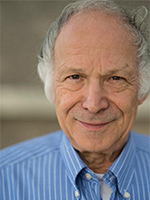 Stanley Rosen 骆思典 teaches political science at USC and for six years served as director of the East Asian Studies Center. Rosen has written on a wide range of subjects, from his early work on the Cultural Revolution to his work on education, film, and soft power. His most recent books are Art, Politics and Commerce in Chinese Cinema (ed. with Y. Zhu) and Chinese Politics: State, Society and the Market (ed. with P. Gries). Rosen is co-editor of the journal Chinese Education and Society.
Stanley Rosen 骆思典 teaches political science at USC and for six years served as director of the East Asian Studies Center. Rosen has written on a wide range of subjects, from his early work on the Cultural Revolution to his work on education, film, and soft power. His most recent books are Art, Politics and Commerce in Chinese Cinema (ed. with Y. Zhu) and Chinese Politics: State, Society and the Market (ed. with P. Gries). Rosen is co-editor of the journal Chinese Education and Society.
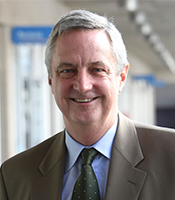 David Shambaugh 沈大伟 teaches political science and is director of the China Policy Program at George Washington University. He previously taught at the University of London and edited the leading journal in the field, The China Quarterly. His many influential books include China Goes Global: The Partial Power, China’s Communist Party: Atrophy and Adaptation, and Modernizing China’s Military: Progress, Problems, and Prospects. His latest, China’s Future and the 6th edition of The China Reader: Rising Power are just out.
David Shambaugh 沈大伟 teaches political science and is director of the China Policy Program at George Washington University. He previously taught at the University of London and edited the leading journal in the field, The China Quarterly. His many influential books include China Goes Global: The Partial Power, China’s Communist Party: Atrophy and Adaptation, and Modernizing China’s Military: Progress, Problems, and Prospects. His latest, China’s Future and the 6th edition of The China Reader: Rising Power are just out.
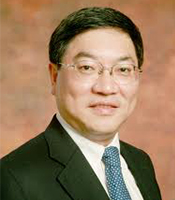
SHEN Dingli 沈订立was trained as a physicist but has become one of China’s foremost international relations scholars and commentators. He teaches at Fudan University where he is currently the deputy dean of the Institute of International Affairs. He previously headed the Fudan Center for American Studies. A prolific writer of hundreds of articles and op-eds, Shen is also the author of academic works on arms control, American national security strategy, conservatism and American foreign policy, economic power shifts, and international order.
 Victor Shih teaches political economy at the University of California at San Diego. He’s best known recently for his work on Chinese local government debt, but he’s published widely on banking policies, fiscal policies, and the interplay of policies with elite politics. He’s the author of Factions and Finance in China: Elite Conflict and Inflation. Working with colleagues, Shih has built what is considered the largest database on Chinese elites. His recent articles include “Getting Ahead in the Communist Party” and “Guerilla Capitalism.”
Victor Shih teaches political economy at the University of California at San Diego. He’s best known recently for his work on Chinese local government debt, but he’s published widely on banking policies, fiscal policies, and the interplay of policies with elite politics. He’s the author of Factions and Finance in China: Elite Conflict and Inflation. Working with colleagues, Shih has built what is considered the largest database on Chinese elites. His recent articles include “Getting Ahead in the Communist Party” and “Guerilla Capitalism.”
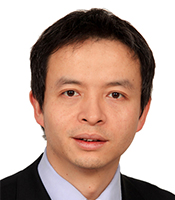

 Jonathan Woetzel has been based in Shanghai for twenty years and headed McKinsey’s Global Institute. He has advised China’s State Economic Commission and has conducted more than sixty projects for local Chinese governments. He earned his doctorate at USC and he teaches at several universities. Woetzel is the author of many books, including No Ordinary Disruption: The Four Global Forces Breaking All the Trends (with Richard Dobbs and James Manyika, 2015) and The One Hour China Consumer Book: Five Short Stories That Explain the Brutal Fight for One Billion Consumers (with Jeffrey Towson, 2015).
Jonathan Woetzel has been based in Shanghai for twenty years and headed McKinsey’s Global Institute. He has advised China’s State Economic Commission and has conducted more than sixty projects for local Chinese governments. He earned his doctorate at USC and he teaches at several universities. Woetzel is the author of many books, including No Ordinary Disruption: The Four Global Forces Breaking All the Trends (with Richard Dobbs and James Manyika, 2015) and The One Hour China Consumer Book: Five Short Stories That Explain the Brutal Fight for One Billion Consumers (with Jeffrey Towson, 2015).
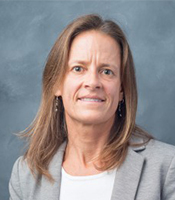 Teresa Wright chairs the political science department at California State University, Long Beach. Her research has focused on how the Chinese state has successfully engineered sweeping economic changes without undertaking significant political reform. She’s written on a wide-range of topics, including trust in government, religious groups, and youth attitudes. Wright’s newest book is Party and State in Post-Mao China. Her earlier books are Accepting Authoritarianism: State-Society Relations in China’s Reform Era and The Perils of Protest: State Repression and Student Activism in China and Taiwan.
Teresa Wright chairs the political science department at California State University, Long Beach. Her research has focused on how the Chinese state has successfully engineered sweeping economic changes without undertaking significant political reform. She’s written on a wide-range of topics, including trust in government, religious groups, and youth attitudes. Wright’s newest book is Party and State in Post-Mao China. Her earlier books are Accepting Authoritarianism: State-Society Relations in China’s Reform Era and The Perils of Protest: State Repression and Student Activism in China and Taiwan.
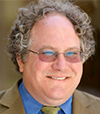 Clayton Dube 杜克雷 heads the USC U.S.-China Institute. Dube and the institute are focused on informing public discussion about the importance and evolving nature of U.S.-China relations. Dube teaches Chinese history and studies the role of the media in U.S.-China relations.
Clayton Dube 杜克雷 heads the USC U.S.-China Institute. Dube and the institute are focused on informing public discussion about the importance and evolving nature of U.S.-China relations. Dube teaches Chinese history and studies the role of the media in U.S.-China relations.
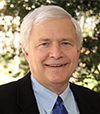 Thomas Hollihan teaches communication at USC and chairs the U.S.-China Institute executive committee. He specializes in political communication and has been a consultant for politicians, the U.S. Navy, and various businesses and non-profit organizations. His most recent book is The Dispute over the Diaoyu/Senkaku Islands: How Media Narratives Shape Public Opinions and Challenge the Global Order. His earlier books include Uncivil Wars: Political Campaigns in a Media Age.
Thomas Hollihan teaches communication at USC and chairs the U.S.-China Institute executive committee. He specializes in political communication and has been a consultant for politicians, the U.S. Navy, and various businesses and non-profit organizations. His most recent book is The Dispute over the Diaoyu/Senkaku Islands: How Media Narratives Shape Public Opinions and Challenge the Global Order. His earlier books include Uncivil Wars: Political Campaigns in a Media Age.
 Yu HONG works on political economy and teaches communication at USC. Her research includes information and communication technologies and their development, the political economy of global communication, China's information and communications industry, information labor, and information society theories. She is the author of Class Formation, and China's Informationized Policy of Economic Development and is at work on Networking China: The Digital Transformation of the Chinese Economy.
Yu HONG works on political economy and teaches communication at USC. Her research includes information and communication technologies and their development, the political economy of global communication, China's information and communications industry, information labor, and information society theories. She is the author of Class Formation, and China's Informationized Policy of Economic Development and is at work on Networking China: The Digital Transformation of the Chinese Economy.
 Brett Sheehan teaches history and directs the East Asian Studies Center at USC. He specializes in business history and is the author of Industrial Eden: A Chinese Capitalist Vision and Trust in Troubled Times: Money, Banking and State-Society Relations in Republican Tianjin, 1916-1937 along with numerous articles and book chapters. He’s earned teaching awards at two universities and serves as the Journal of Asian Studies book review editor for modern China.
Brett Sheehan teaches history and directs the East Asian Studies Center at USC. He specializes in business history and is the author of Industrial Eden: A Chinese Capitalist Vision and Trust in Troubled Times: Money, Banking and State-Society Relations in Republican Tianjin, 1916-1937 along with numerous articles and book chapters. He’s earned teaching awards at two universities and serves as the Journal of Asian Studies book review editor for modern China.
Featured Articles
Please join us for the Grad Mixer! Hosted by USC Annenberg Office of International Affairs, Enjoy food, drink and conversation with fellow students across USC Annenberg. Graduate students from any field are welcome to join, so it is a great opportunity to meet fellow students with IR/foreign policy-related research topics and interests.
RSVP link: https://forms.gle/1zer188RE9dCS6Ho6
Events
Hosted by USC Annenberg Office of International Affairs, enjoy food, drink and conversation with fellow international students.
Join us for an in-person conversation on Thursday, November 7th at 4pm with author David M. Lampton as he discusses his new book, Living U.S.-China Relations: From Cold War to Cold War. The book examines the history of U.S.-China relations across eight U.S. presidential administrations.




